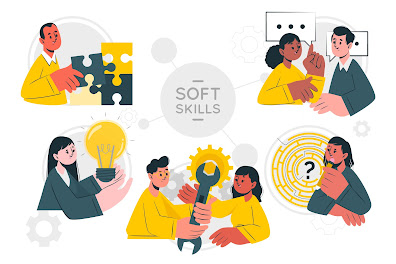Navigating the Workplace Maze: Beyond the Limits of the Level 3 CAVA
The Static Nature of the Level 3 CAVA
The Level 3 CAVA, a staple in vocational education, serves as a snapshot of an individual's skills at a specific moment. While it undoubtedly provides insights into an individual's proficiency in a given area, it fails to consider the evolving nature of industries that demand continuous learning and adaptation.
In fields like technology, healthcare, and finance, where advancements occur at breakneck speed, a static certification can quickly become outdated. A programmer proficient in a specific coding language today might find themselves lagging behind tomorrow if they don't actively seek out new knowledge and skills.
Limitations of Standardized Assessments
Standardized assessments, including the Level 3 CAVA, have their own set of limitations. They often focus on rote memorization and a narrow set of skills, ignoring the broader qualities that make a professional successful in the workplace. Creativity, critical thinking, and adaptability—the very skills needed to thrive in a rapidly changing job market—are often left unmeasured.
Moreover, these assessments tend to be one-size-fits-all, failing to recognize the unique challenges and opportunities individuals face. The diverse range of talents and perspectives that contribute to a dynamic workforce cannot be adequately gauged through a standardized lens.
Embracing Lifelong Learning
To address the shortcomings of static certifications, individuals and organizations must embrace the concept of lifelong learning. Continuous skill development, self-directed learning, and staying abreast of industry trends are crucial components of this approach.
One alternative method is the use of micro-credentials and digital badges. These bite-sized certifications focus on specific skills or knowledge areas and are often more responsive to industry changes. This allows professionals to stack credentials over time, creating a personalized and up-to-date portfolio of skills that better reflects their current expertise.
Collaborative Learning and Mentoring
Another effective strategy is promoting collaborative learning environments and mentorship programs. Peer-to-peer knowledge sharing and guidance from experienced mentors can provide invaluable insights and foster a culture of adaptability within organizations. This approach acknowledges the importance of both technical skills and the soft skills necessary for navigating complex work environments.
Conclusion
As the job market continues to evolve, the Level 3 Certificate in Assessing Vocational Achievement, and other static assessments will inevitably face challenges in keeping up. The key lies in adopting alternative methods that emphasize continuous learning, adaptability, and collaboration. Lifelong learning, micro-credentials, and mentorship programs are just a few avenues that can help individuals stay relevant and resilient in the face of change.
In a world where the only constant is change, the ability to adapt and learn on the fly is the true measure of success. Let's move beyond the confines of traditional certifications and embrace a future where skills development is a lifelong journey, not a one-time destination.

.jpg)


Comments
Post a Comment